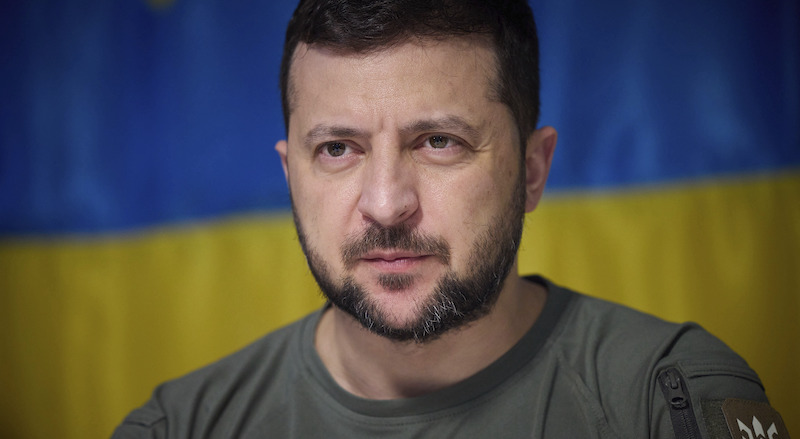Although the war in Ukraine is still probably far from its end, Western governments and some international financial institutions have already begun discussions with the government of Volodymyr Zelensky about the reconstruction of the country. However the war ends, Ukraine will be a devastated country that will need huge interventions to rebuild its infrastructure, its cities, its social and business fabric.
Discussions about how to finance the reconstruction of Ukraine are still quite behind, and will probably drag on for years. But a preliminary issue, which could determine its success, concerns corruption. Before the war, Ukraine was one of the poorest and most corrupt countries in Europe. From 2014 onwards, when the country freed itself from Russian influence with the Euromaidan revolution, things slowly improved. One of the main problems of the country, he recounted Bloombergconcerns the existence of a very powerful class of oligarchs, who have been weakened by the outbreak of war, but who may seek to profit from Reconstruction once the war is over.
According to Transparency International’s Corruption Perceptions Index, which is based on expert assessments and opinion polls, Ukraine is the 116th most corrupt country in the world, the worst in Europe after Russia (l Italy is in 52nd place). However, things have improved in recent years, in 2013 Ukraine was in 142nd place. But if the changes are happening slowly, one of the causes is precisely the oligarchs.
As in Russia and other countries in the region, after the collapse of the Soviet Union in Ukraine a class of oligarchs had developed, i.e. entrepreneurs who, taking advantage of the weakness of state institutions, had managed to take control of large parts of the economy , and consequently to obtain enormous political power and the ability to influence the government, the media and the judiciary.
Since 2014, one of the goals of the Ukrainian government has always been to eliminate corruption and limit the power of the oligarchs. There has been some success, for example in banking sector reform. In 2016 PrivatBank was nationalized, the largest bank in the country owned by Igor Kolomoisky, an oligarch who is also very active in the media sector. Even when Volodymyr Zelensky was elected president in 2019, one of his main campaign promises was to eliminate corruption. Zelensky established anti-corruption courts and institutions, but in recent years the reforms of the Ukrainian government were still judged too timid: a piece of Ukrainian institutions was still compromised with the power of the oligarchs, at least before the war.
The Russian invasion has changed many things, not least because the oligarchs have decided to participate in the war effort. Rinat Akhmetov, Ukraine’s richest man and the country’s most powerful oligarch, has donated huge sums to help defend the country, spending a not inconsiderable portion of his personal wealth.
But the power of the oligarchs has declined over the last year mainly for two other reasons. First of all the destruction brought about by the war. One of the main sources of Akhmetov’s wealth, for example, was the Azovstal steel plant in Mariupol, which was the center of a long and fierce battle between Ukrainian and Russian forces last year that destroyed virtually everything. Today Mariupol is still occupied by Russia, and the steel mill is at a standstill.
Secondly, in response to the invasion of Russia, the Ukrainian government has launched massive emergency economic measures, which have led to the commissioning or nationalization of important companies, including those linked to the oligarchs. According to experts cited by Bloombergwhich, however, were based on estimates because official data are not available, state intervention in the Ukrainian economy during the war has grown dramatically.
Over the past year, however, Zelensky has shown himself to be very tough on cases of corruption, because he knows that Western aid also depends on how much Ukraine proves to be able to spend it and make it bear fruit. In January, for example, he dismissed a large number of public officials over suspicions of corruption.
The combination of these factors meant that the oligarchs lost a lot of wealth and a lot of power. Akhmetov’s net worth was estimated at $15.3 billion in 2013, and today it is $5.7 billion. During the same period, Kolomoisky’s net worth rose from $2.4 billion to $1 billion.
However, the problem is that reconstruction, if not accompanied by economic and institutional reforms, could become an opportunity for the oligarchs to recover their power. Furthermore, other entrepreneurs could take advantage of the large amounts of money that will most likely come to Ukraine from the West to enrich themselves, and a new class of oligarchs could therefore be formed.
Although still in a preliminary stage, there is a concrete possibility that negotiations on reconstruction aid will be linked to the implementation of reforms and anti-corruption measures. At the end of March, the International Monetary Fund approved new economic aid to Ukraine worth $15.6 billion. The first part of this aid (2.7 billion) has already been delivered, but the second part, i.e. the bulk of the sum, will only be delivered next year, and on condition that the Ukrainian government approves structural reforms to stabilize the economy of the country and fight against corruption.
